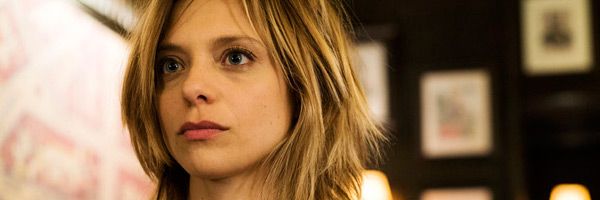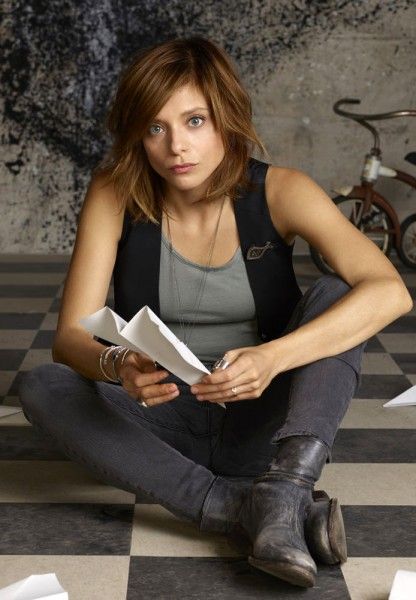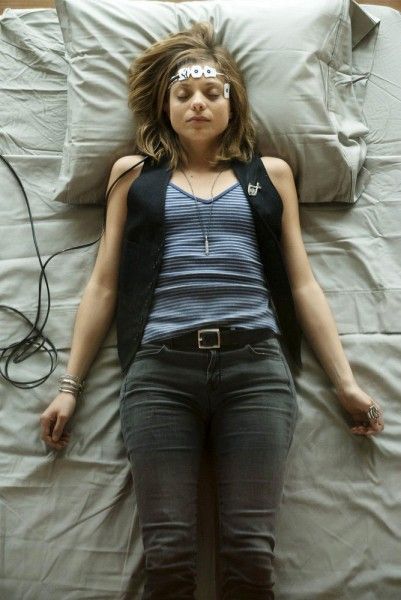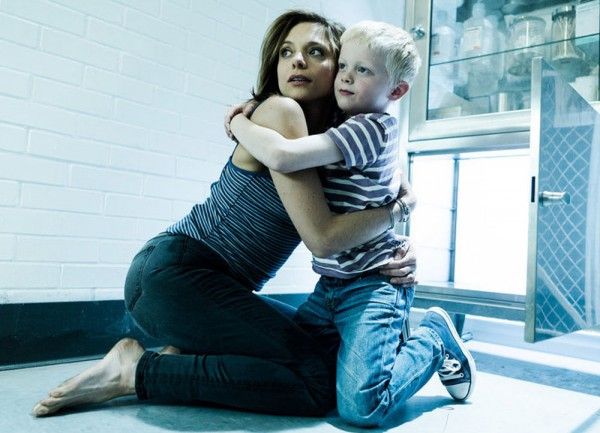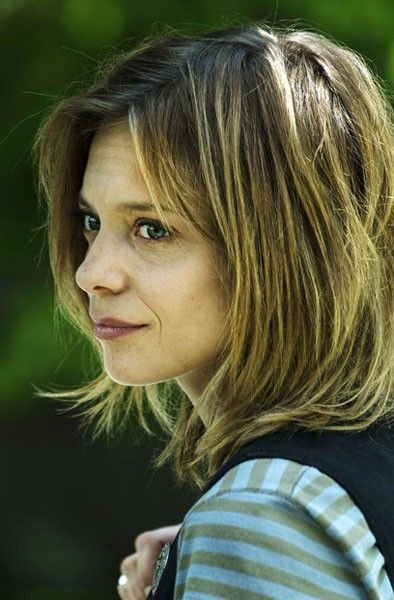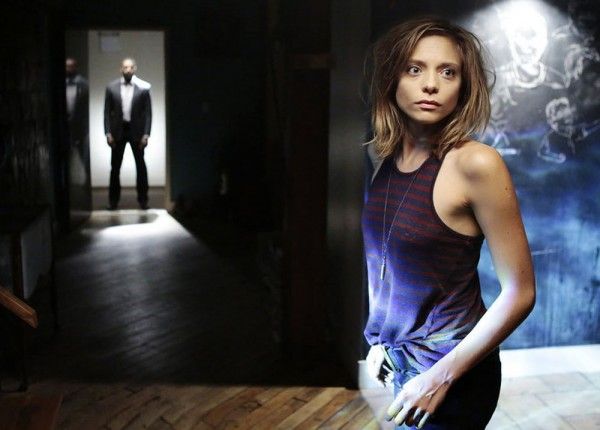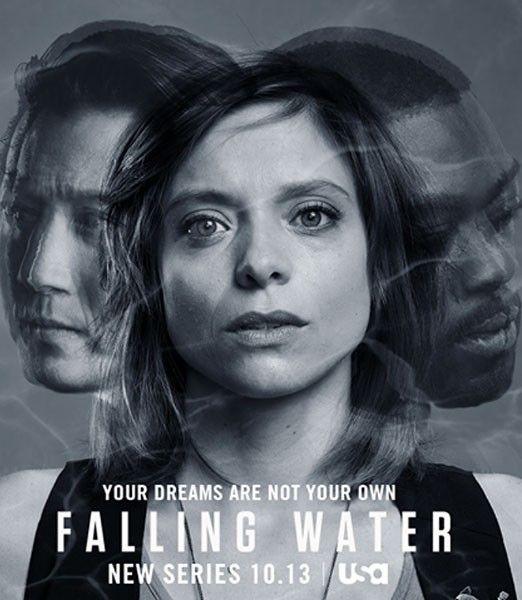From executive producer Gale Anne Hurd and showrunner Blake Masters, the USA Network drama series Falling Water tells the story of three unrelated people – a trend-spotter named Tess (Lizzie Brocheré), a fixer named Burton (David Ajala) and a cop named Taka (Will Yun Lee) – each motivated by different but very personal factors. As they realize they’re connected by the fact that they are all dreaming separate parts of a single common dream, they must figure out what their dreams are trying to tell them and how much they can alter reality by altering the course of their dreams.
During this exclusive phone interview with Collider, actress Lizzie Brocheré (American Horror Story: Asylum) talked about how she got involved with this show, how much she knew about the journey for this season, the story’s deep character exploration, how much she pays attention to her own dreams, working in two very different worlds, how much the lines will start to blur, and getting all of the answers by the end of the season. Be aware that there are some spoilers discussed.
Collider: How did this come about for you? Did you go through an audition process for this show?
LIZZIE BROCHERE: I did. The audition process was pretty easy. Sometimes characters just choose you. I read this and I knew Tess, immediately. I taped for it and booked the job, two days later, from abroad. They didn’t even meet me. The scene was really fun. It was one of these scenes where you get to show what you can do. It was a scene in reality, and then I fall asleep and wake up in that same scene. I was in a dream, and then I went back to sleep. I was able to show a little variation and I had a lot of fun doing it.
How much did they tell you about the journey for this season? Were you given much information, or did you have to learn that as you read the scripts?
BROCHERE: I was given a little information, but not much. I was given what Tess knew, pretty much, which I like. It was interesting to see who knew what. Of course, after a month or two into shooting, you start talking to other actors and you realize, “Oh, god, you know that?! Really?!” But, I only knew what my character knew. You have to trust that they’re going to lead you on a good path. Blake [Masters] has really listened. He’s good at hearing where you want to go. There’s something organic about TV shows. That’s what I love most about them. When you do them, little by little, the story wraps around you and you’re a part of that plan. There’s something very organic in the way that it evolves, even if it is a set universe and the showrunners know where things are going.
This show is about science and metaphysics, but it’s also a pretty deep exploration of character. What can you say about who Tess is and how she fits into the story that’s being told this season?
BROCHERE: Tess is a dreamer. The starting point of the show is, what if all of our dreams were actually connected and what if some people had the ability to travel through dreams and through other people’s dreams? Besides being a really good dreamer, Tess is also a trend-spotter. She’s been using her ability to get where people want to go, and to feel where the masses want to move and gravitate towards. She’s been selling that to big companies and for advertisements. She’s convinced that she has a son. She’s been seeing this little boy for six years of her life and she’s convinced it’s her son, but she has to proof of it, physically. There’s no palpable evidence of that. She even went to a mental institute because she was convinced of it. She has this ability, but at the same time, she’s doubts everything and doesn’t trust anyone, especially not herself. What she feels is her inner truth is not being recognized in an outward manifestation. At the beginning of the season, she meets Bill Boerg, who’s a billionaire obsessed with dream traveling, and he’s going to help her find her son. So, she’s going to explore the dream world and try to connect with her son. In the same way, you have Will Yun Lee’s character, Taka, who’s trying to connect with his catatonic mother, and Burton (David Ajala) who’s trying to connect with his lover. It’s about three characters who see things in their dreams that seem to not exist in reality, and we follow their exploration of the dream world.
It’s interesting to think about how little we know about or understand our dreams. We spend a big portion of our lives dreaming, but we don’t really know much of anything about what that means. Before doing this show, had you ever thought about or paid any attention to your dreams, or do you think much more about it now?
BROCHERE: Before the show, I used to say that I don’t remember my dreams. I thought there were people who remember their dreams and people who don’t remember their dreams. And then, I got these scripts and I discovered what lucid dreaming is, and I started paying a lot more attention to my dreams. I realized that the more attention and respect you give to your dreams, it can help you remember those dreams and navigate those dreams. After getting the job, I started dreaming and remembering my dreams, and that was a whole exploration of how dreams can actually be controlled. There are things I can do to not just be totally controlled or overwhelmed by the stress I felt, during the day. There is a way to separate that day and enter the dream world with something a lot more peaceful to allow my subconscious to inspire me more or help me find things I can connect with. I’m not a good dreamer like Tess, but what a power. If she can travel through those dreams and travel through that realm of imagination and collective unconscious, it’s a fascinating world.
As Tess starts to realize that she can have an affect inside of her dreams, how does she feel about that?
BROCHERE: She knows she does that. She’s always known that she could travel in her dreams and that she’s a good dreamer. With Bill and through the tests, she’s going to train and realize how good she is. But for the moment, she’s so focused on trying to find her son that she’s not really realizing how good of a dreamer she is and how amazing her ability can be. But throughout the season, she’s going to realize, more and more, that it’s powerful. In reality, her mistrust of everything makes her almost like a fish out of water. When you see her in the dream world, she swims. Suddenly she feels, she smells, she touches, and she moves a lot more easily than in the real world.
What’s it like to work in these very different worlds, when you’re exploring reality versus the dreams? Does it feel very separate on set?
BROCHERE: It’s very much a relief because I can actually touch things in a different way. I can really explore the physicality of things and feel more. It’s a lot more sensorial to shoot the dream sequences than the actual reality scenes where she’s so closed off. In the beginning, she really mistrusts herself and the real world, but she opens up, throughout the season.
This seems like a pretty emotional journey for Tess, especially being convinced she’s had a child without having any proof or evidence of that. How challenging is it for her to feel like nobody believes what she’s saying?
BROCHERE: It gets better, the more she trusts herself, but it made me very paranoid. She never releases her guard. It gets better, but in the beginning, she’s such a wrecked soul. That’s also what I connected with. It moved me so much. I always get unstable characters to play. It probably balances me. Whether it’s your son or just something in a dream that you believe in, sometimes you get that feeling that something is true and you really believe in it, even though everything around you seems to be saying the opposite. That loneliness of the believer is something that I really love in Tess.
Is it unusual to be a part of telling this three-person story while you’re not interacting with those other two actors, at least initially?
BROCHERE: Yeah, it is. At the same time, you feel like you’re an arm and they’re a leg, and that you’re a part of the same organism. There are things in the characters of Burton and Taka that moved me and touched me. When I read the pilot, there was something about Taka’s relationship with his mother that really spoke to me and resonated deep in me. The more you understand why these three characters are connected, you’ll be like, “Oh, that’s why it felt so familiar!” It’s funny to be on set and finally meet them. I think all of our characters are so lonely that there’s something similar to the actors who finally get together and feel like, “I’m not alone!”
Will we start to see the dream world affect the real world more, as the series goes on?
BROCHERE: Yeah, and then it’s going to get blurrier and blurrier between the dream world and the real world.
We’ve been told that we’ll have all of the answers, by the end of this season. Is it nice for you, as an actor, to know that you’ll know exactly where everything is headed and why it’s headed there, instead of being strung along?
BROCHERE: That was actually the first question that I asked them, before I accepted the job. The first question I asked was, “Is this going to be Lost?” He didn’t tell me where the show was ending, but he said that we would know. It is a relief. It’s also why I did this job. This whole first season is an introduction to our characters and what this universe actually is. When you understand that, you can start, so I really hope we get a Season 2.
What have you most enjoyed about being a part of this show, playing this character, and working with these people?
BROCHERE: That feeling of wanting to read the script, every time, and reading them on your phone because you’re so obsessed with what’s going to happen and being surprised all the time. It’s constantly been a surprise and a discovery. It’s been a very beautiful adventure.
Falling Water airs on Thursday nights on the USA Network.

